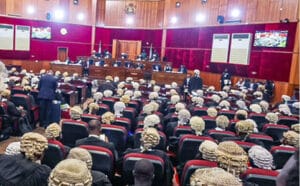
The Presidential Election Petition Court (PEPC) has set today as the deadline for all parties to file written responses to petitions filed by Atiku Abubakar of the Peoples Democratic Party (PDP) and Peter Obi of the Labour Party (LP) challenging President Bola Tinubu’s declaration as the winner of the February 25 presidential election.
Following the regular adoption processes, the five-member panel chaired by Justice Haruna Tsammani will set a date for a decision in the two cases.
Before completing their petitions, Atiku and Obi called 40 witnesses to corroborate their charges against the February 25 presidential election, which restored Tinubu of the APC as president.
They complain that INEC failed to send real-time election results as promised by its Chairman, Prof Yakubu Mahmood. They further said Tinubu should not be on the ballot due to alleged deception, irregularities in his academic records, and criminal forfeiture.
In his plea, Atiku particularly stated to the panel that “the non-compliance substantially affected the result of the election, in that Tinubu ought not to have been declared or returned as the winner of the election.”
Similarly, Obi, in his petition CA/PEPC/03/2023, insisted that he, not Tinubu, had won the presidential election, accusing the electoral umpire of manipulating the scores recorded in the Bi-modal Verification Accreditation System (BVAS) machines and falsifying figures at various collation centres across the country to favour Tinubu and the APC.
While Atiku sought 27 witnesses to bolster their petitions and persuade the justices to remove Tinubu as President, Obi called 13, including experts and INEC’s ad hoc workers who acted as Presiding Officers during the poll.
According to witness testimony, INEC purposefully refused to comply with its guidelines requiring it to transmit election results in real-time from the Bi-modal Verification Accreditation System (BVAS) to the INEC’s Results Viewing (IReV) portals, and that INEC’s claim of encountering some “technical glitches” while uploading the presidential election results was false.
The petitioners presented video footage to the panel, which showed Mahmood and INEC’s National Commissioner for Information and Voter Education promising Nigerians and the international community that the electronic transfer of election results is irreversible.
Aside from witness testimony, the petitioners produced bundles of evidence to the court, including polling unit results, ward results, local government area results, state results, and the final result, which they said INEC altered to make Tinubu president.
While INEC and Tinubu each called only one witness, the APC chose to use Tinubu’s testimony and evidence as its defence against Atiku and Obi’s petitions.
However, President Tinubu, the APC, and INEC have all stated that petitioners failed to demonstrate how the election outcome was rigged in the president’s favour and that they received the majority of legitimate votes during the disputed polls.
According to the respondent’s counsel, the evidence offered by the petitioners failed to establish that the second and third respondents are ineligible to run for office.


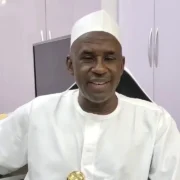
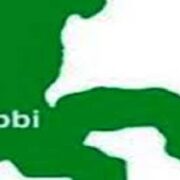
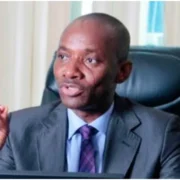
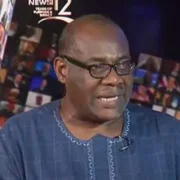

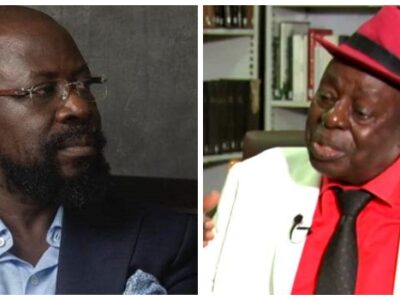












Comments